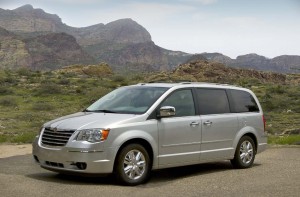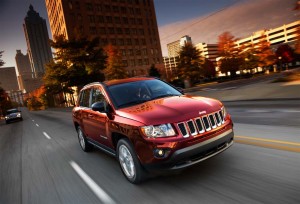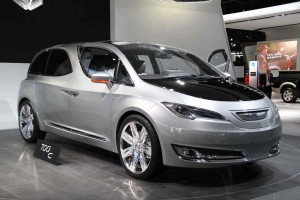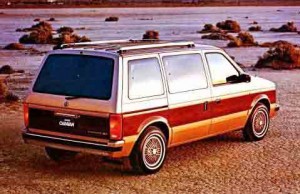
The Chrysler Town & Country is likely to end its long run in 2014, leaving the maker with just one minivan.
With the market for minivans steadily declining Chrysler will kill off one of its two remaining models and replace it with a more trendy crossover vehicles, according to company sources.
But the automaker has apparently reversed its original plan and will now drop the more upscale Chrysler Town & Country model and keep the mainstream Dodge Caravan, one of the original models the maker introduced to much fanfare back in 1984.
According to comments made this week by CEO Sergio Marchionne, Chrysler will also abandon the slow-selling Jeep Compass, the brand’s least traditional SUV offering.
The apparent 2014 demise of the Town & Country underscores several dramatic changes that have occurred in the U.S. automotive marketplace over the past three decades. When former Chrysler Chairman Lee Iacocca revealed the original Dodge Caravan and Plymouth Voyager models revolutionized family transportation with their vast interiors and easy access sliding doors and tailgate.
At the segment’s peak Americans bought nearly 2 million of the people-movers annually. And the competition raced to catch up to Chrysler. But early alternatives from both Detroit and Japan largely missed the mark and for nearly a quarter century – a lifetime in automotive terms – Chrysler remained not only the dominant minivan manufacturer but routinely held a market share of 50% or more.
Over the last decade, however, trends have shifted. While Chrysler’s Detroit competitors pulled out of the minivan market after repeated failures with products like the Oldsmobile Silhouette, Japanese makers have repeatedly hammered away at Chrysler’s lead, steadily improving product offerings like the Honda Odyssey.
At the same time, the once must-have minivan has lost its luster. Even the family-oriented comic strips have routinely taken aim at what are derisively referred to as “mom-mobiles.” And so, even though analysts and reviewers continue to laud the flexibility and functionality of the otherwise stodgy minivans buyers have shifted in droves to alternatives, mostly sport-utility vehicles and crossovers.
Last year, Americans purchased just 472,398 minivans. Of that number, Chrysler’s two models accounted for less than half: 110,862 Dodge Caravans and 94,320 Town & Country models.
The smallest of the domestic makers had hoped to find a way to keep both models going. At the Detroit Auto Show earlier this year, Chrysler quietly unveiled the 700C concept, a radically styled show car that some in the company had hoped would generate positive buzz for its panoramic windows and curvaceous sheet metal. But reaction was mixed, at best, possibly confirming the position of those inside Chrysler who were already arguing that the company now needed just one minivan – after having already abandoned the old Voyager.
The maker isn’t completely abandoning the family carrier market, according to Chrysler’s current CEO Sergio Marchionne. He told Automobile magazine that the Town & Country could be “reinvented” in the form of a more stylish crossover vehicle.
A possible advantage of that approach would be the opportunity to sell it in other markets outside the U.S. – where classic minivans never gained much traction.

Despite an attempt to make it look more like the Grand Cherokee, Jeep's Compass has never really caught on.
The new model would almost certainly abandon the classic minivan sliding doors, a mixed blessing that improves ease of entry but is so clearly associated with the minivan that makers steer clear to avoid having alternatives negatively labeled. That was a factor in the design of the Ford Flex, a people-mover the maker introduced to replace its unloved WindStar and FreeStar minis, opting for standard swinging, rather than sliding, doors.
In his Automobile interview, Marchionne also said Chrysler will continue paring back its line-up to reduce product duplication among its brands. That has apparently doomed the Jeep Compass. The near-twin of the Jeep Patriot, Compass was aimed at buyers who wanted a bit less of the traditionally rugged SUV look.
It is unclear whether Compass will be replaced by another offering, though Chrysler’s 2009 turnaround plan called for a smaller SUV model that would be based on a platform supplied by the U.S. maker’s Italian partner Fiat.


